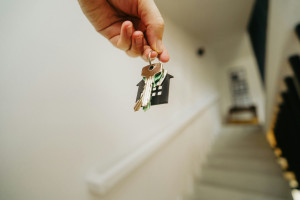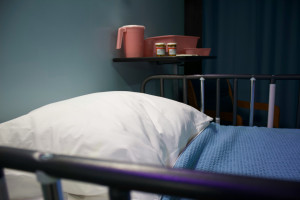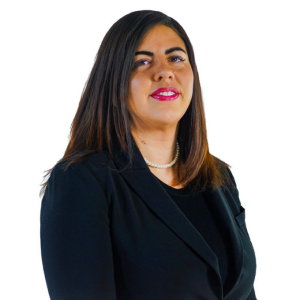For many Australians, owning a café is an exciting prospect. It offers the chance to be part of a community, serve food and coffee you are proud of, and run a business that becomes part of people’s daily routine.
But cafés are not simple businesses. Their success depends on location, customer loyalty, lease terms, staff management, supplier relationships and food safety compliance.
If you are planning to buy a café in Sydney or elsewhere in NSW, it is important to understand what you are actually purchasing and what risks may arise. With the right preparation and advice, you can avoid costly mistakes and give yourself the best chance of success.
Thinking About Whether a Café is Right for You
Before you start searching for a café business for sale in NSW, take a step back and consider whether this type of business is suited to you.
Most cafés require a very hands-on owner, particularly at the start. You will be managing staff, suppliers and customers directly, often at busy or unsociable hours.
Margins in the café industry can be thin, and competition is strong. Location, rent and loyal customers often determine whether a café survives.
Hospitality experience is not essential, but it can give you a valuable edge in understanding rostering, food costs and customer service.
What You’re Really Buying in a café sale
When you purchase a café, you are not just buying the name. You are taking on a group of assets that make up the business. These typically include:
The lease – The right to occupy the premises, which can make or break the business. Pay attention to rent, the length of the lease, renewal options, and landlord consent.
Plant and equipment – Coffee machines, grinders, fridges, ovens and furniture. Confirm whether these are owned outright or under finance.
Stock – Food and beverages, usually counted and valued at settlement.
Licences and approvals – Food business registration, council permits and liquor licences if alcohol is served.
Goodwill – The café’s reputation, brand and customer base. This can be fragile if tied to the seller or certain staff.
Supplier relationships – Contracts with roasters, bakeries and wholesalers. Some may include exclusivity or minimum orders.
Checking the Business Before You Commit
Due diligence is the process of carefully investigating the business before you buy. This step is critical to confirm that the café is both profitable and compliant.
Financial
Look closely at tax returns, BAS statements and financial reports. Compare these with point-of-sale records and bank deposits to confirm accuracy. Check for outstanding debts with suppliers or the ATO.
Lease
Ask how the rent compares to turnover, how long is left on the lease, and whether there are renewal options. Remember that landlord consent is usually required for the lease transfer.
Employees
Under the Fair Work Act 2009 (Cth), some entitlements such as annual leave or long service leave can carry over to a new owner. It is also important to confirm that staff are being paid correct award rates and superannuation.
Equipment and Stock
Inspect key equipment to make sure it works. Confirm ownership, as some items may be under finance. Perishable stock should also be checked to avoid paying for items close to expiry.
Licences and Compliance
Cafés must meet the requirements of the Food Act 2003 (NSW) and the Food Standards Code. Council approvals and food business registrations should be in place. If alcohol is served, ensure the liquor licence is valid and transferable.
Goodwill and Suppliers
Look at online reviews and customer feedback to assess reputation. Check supplier contracts carefully, especially for coffee beans, as these agreements can be restrictive.
Training and Transition Support
When buying a café, the new owner will often rely on the systems, recipes and relationships established by the seller.
For that reason, many buyers will negotiate a training and transition period into the business sale contract. This may involve:
The seller working in the café before or after settlement.
Introductions to key customers, suppliers and the landlord.
Handing over manuals, recipes and supplier lists.
Training staff and/or the new owner.
The length and detail of this transition can be negotiated, but it should always be written into the contract.
What the contract for the sale of business should cover
The contract for sale of the café should reflect what was agreed during due diligence and protect the buyer against risks.
While each transaction is unique, commonly occurring and important issues include:
How the purchase price is allocated between goodwill, equipment and stock.
A restraint of trade preventing the seller from opening a competing café nearby.
A condition that the sale is subject to landlord approval of the lease transfer.
A clear allocation of employee entitlements.
Written obligations for training and transition support.
How a Café is Valued
The value of a café depends on several factors:
Location, visibility and foot traffic.
Rent compared to turnover.
Weekly coffee sales and food margins.
The condition of equipment.
The strength of the brand and reputation.
The security of the lease.
Goodwill should always be approached with caution. A café that relies heavily on the seller’s personal involvement may lose value once ownership changes. Often it can be helpful to get advice from your accountant or a business valuer.
Mistakes Buyers Often Make
Common mistakes include:
Taking on a lease with high rent or little security of tenure.
Overlooking food safety or council compliance.
Underestimating staff costs and entitlements.
Assuming equipment is included when it is not.
Failing to arrange proper training and handover.
The Legal Process
The legal steps in buying a café usually include:
A heads of agreement, outlining the main terms.
A contract for sale, prepared by the seller’s lawyer.
A due diligence period, where the buyer reviews financials, the lease and compliance.
Landlord consent for the lease transfer.
Settlement, where the purchase price is paid, assets are transferred and the café is handed over.
Why Legal Advice Matters
A café might look straightforward, but the legal and financial issues behind it are often complex. Lease terms, staff entitlements or compliance gaps can turn what looks like a dream purchase into a serious liability.
An experienced hospitality lawyer or business lawyer in Sydney can help by:
Reviewing the contract and lease.
Negotiating conditions that protect you.
Ensuring staff and supplier obligations are dealt with properly.
Documenting training and transition arrangements.
Guiding you through settlement.
For anyone considering a café business for sale in NSW, early legal advice can provide peace of mind.
Final Thoughts
Owning a café can be rewarding, but it comes with challenges. The keys to success are thorough due diligence, a clear and fair contract, and proper training and transition support from the seller.
With these steps in place, and with the right legal advice, you can protect your investment and give your new business the best chance to thrive.
At Thornton + King, our business lawyers regularly assist clients buying and selling cafés and other hospitality businesses across NSW. If you are considering buying a café in Sydney, we can guide you through the process and safeguard your investment.
Buying a Business in NSW
If you're considering buying a café in NSW, you may also find it helpful to read our related guides on purchasing different types of businesses. These resources cover general principles and industry-specific issues across sectors:
Exploring these guides can help you gain a broader understanding of the different factors that apply when buying a business in New South Wales.












